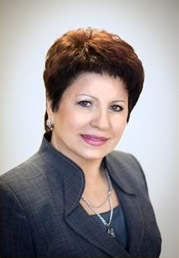 The European Forum for National Nursing and Midwifery Associations (EFNNMA) says its members have always had an important role in immunisation and are becoming increasingly relevant in the ‘information age’.
The European Forum for National Nursing and Midwifery Associations (EFNNMA) says its members have always had an important role in immunisation and are becoming increasingly relevant in the ‘information age’.
Nurses sometimes organise and deliver vaccination while midwives are a trusted source of evidence-based public health information about vaccination during and after pregnancy.
“Without doubt, nurses and midwives should play a role in increasing immunisation rates,” says Valentina Sarkisova, Chair of the EFNNMA.
Nurses and midwives should extend their technical and organisational role in vaccination to take an even more active role in teaching and providing information, she told Vaccines Today.
“Patients who wish to have complete information – and use multiple sources – need nurses and midwives as a source of good information based on WHO recommendations and the latest scientific evidence,” Ms Sarkisova said.
It is well established that patients can forget more than half of the details shared during a patient-doctor consultation. They may have follow-up questions that nurses can help with. “Nurses spend a lot of time with patients and are very close to them. They are natural advisors.”
The EFNNMA advises its members provide details of the benefits of vaccines and any potential risks and to refer them to their doctor where necessary.
“In addition, I would like to stress that the management of national immunisation programmes must be done by nurses in the context of primary health care,” says Ms Sarkisova. “Vaccines should not be administered by unqualified personnel.”
Specialist nurses also have an increasingly important role in raising vaccine awareness among patients with chronic diseases. People living with diabetes, chronic lung conditions and older people are among the priority groups for seasonal flu vaccination.
“In many European countries there are nurses with special roles in caring for patients with non-communicable diseases. Nurses provide care, consultations, and patient teaching both in primary care and in hospitals,” says Ms Sarkisova.
What do you think? Have you discussed immunisation with a nurse? If so, did you find it helpful?
Tell us below in the Comments section.




